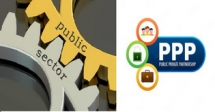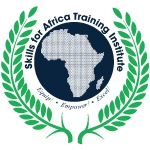|
|
Sustainable Aquaculture and Fisheries Management: Balancing Production and Ecosystem Health
USD 3,000 |
Venue: Nairobi
Other Dates
| Venue | Date | Fee | |
|---|---|---|---|
| Mombasa, Kenya | 14 - 25 Apr, 2025 | USD3500 | |
| Nairobi, Kenya | 05 - 16 May, 2025 | USD3000 | |
| Dubai, United Arab Emirates | 12 - 23 May, 2025 | USD5500 | |
| Nairobi, Kenya | 19 - 30 May, 2025 | USD3000 | |
| Nairobi, Kenya | 02 - 13 Jun, 2025 | USD3000 | |
| Mombasa, Kenya | 09 - 20 Jun, 2025 | USD3500 | |
| Nairobi, Kenya | 16 - 27 Jun, 2025 | USD3000 | |
| Nairobi, Kenya | 07 - 18 Jul, 2025 | USD3000 | |
| Johannesburg, South Africa | 14 - 25 Jul, 2025 | USD5500 |
Sustainable Aquaculture and Fisheries Management equips professionals with the knowledge and skills to ensure the long-term health and productivity of aquatic resources. This course focuses on implementing responsible aquaculture practices, optimizing fisheries management strategies, and understanding the ecological impacts of aquatic resource exploitation. Participants will learn to balance economic needs with environmental sustainability, promote biodiversity, and secure food resources for future generations. By mastering sustainable aquaculture and fisheries management, professionals can contribute to the resilience of aquatic ecosystems and the livelihoods of communities dependent on them.
The growing demand for seafood necessitates a shift towards sustainable practices that mitigate environmental degradation and ensure resource availability. This course delves into the complexities of aquatic ecosystems, explores innovative aquaculture technologies, and examines effective fisheries governance models. By integrating ecological principles with practical management techniques, this program empowers participants to make informed decisions that promote responsible resource utilization and conservation.
Target Audience:
- Aquaculture farmers and managers
- Fisheries managers and officers
- Marine and freshwater biologists
- Environmental consultants
- Policymakers and government officials
- Seafood industry professionals
- Conservationists and NGOs
- Researchers and scientists
- Agricultural extension officers and advisors
- Rural development practitioners
- Students of marine science and environmental management
- Individuals interested in sustainable seafood production
Course Objectives:
- Understand the principles and benefits of sustainable aquaculture and fisheries management.
- Implement techniques for assessing fish stock health and population dynamics.
- Understand the role of ecosystem-based management in fisheries.
- Implement techniques for developing and implementing sustainable fisheries management plans.
- Understand the principles of responsible aquaculture practices.
- Implement techniques for selecting and managing sustainable aquaculture systems.
- Understand the role of water quality and environmental management in aquaculture.
- Implement techniques for minimizing environmental impacts in aquaculture operations.
- Understand the role of traceability and certification in sustainable seafood production.
- Implement techniques for managing bycatch and reducing waste in fisheries.
- Understand the legal and regulatory aspects of aquaculture and fisheries.
- Understand the economic benefits and market opportunities for sustainable seafood.
- Develop strategies for promoting and scaling up sustainable aquaculture and fisheries practices.
Duration: 10 Days
Course Content
Module 1: Foundations of Aquatic Resource Sustainability
- Principles and benefits of responsible aquatic management.
- Understanding the role of ecosystems in fisheries and aquaculture.
- Benefits of balancing production with conservation.
- Historical context and modern sustainable practices.
Module 2: Fish Stock Health and Population Dynamics
- Techniques for assessing fish stock abundance and distribution.
- Implementing population modeling and stock assessments.
- Utilizing data collection and analysis methods.
- Managing fisheries data and information systems.
Module 3: Ecosystem-Based Fisheries Management
- Understanding the role of ecological interactions in fisheries.
- Implementing ecosystem modeling and analysis.
- Utilizing habitat assessments and mapping.
- Managing integrated fisheries management plans.
Module 4: Sustainable Fisheries Management Plans
- Techniques for developing and implementing management strategies.
- Implementing catch quotas and size limits.
- Utilizing gear restrictions and closed seasons.
- Managing fisheries monitoring and enforcement.
Module 5: Principles of Responsible Aquaculture
- Understanding the role of aquaculture in food security.
- Implementing best practices in aquaculture production.
- Utilizing integrated multi-trophic aquaculture (IMTA).
- Managing aquaculture site selection and planning.
Module 6: Sustainable Aquaculture Systems
- Techniques for selecting and managing appropriate aquaculture systems.
- Implementing recirculating aquaculture systems (RAS).
- Utilizing pond culture and cage aquaculture.
- Managing species selection and stocking densities.
Module 7: Water Quality and Environmental Management
- Understanding the impact of aquaculture on water quality.
- Implementing water quality monitoring and treatment.
- Utilizing effluent management and waste reduction.
- Managing environmental impacts in aquaculture operations.
Module 8: Minimizing Environmental Impacts in Aquaculture
- Techniques for reducing nutrient and chemical inputs.
- Implementing sustainable feed management.
- Utilizing biofiltration and bioremediation.
- Managing farm site restoration and rehabilitation.
Module 9: Traceability and Certification
- Techniques for implementing seafood traceability systems.
- Utilizing eco-labeling and certification programs.
- Implementing supply chain management.
- Managing consumer awareness and market access.
Module 10: Bycatch and Waste Reduction
- Techniques for minimizing bycatch in fisheries.
- Implementing selective fishing gear and practices.
- Utilizing bycatch reduction devices.
- Managing waste utilization and processing.
Module 11: Legal and Regulatory Aspects
- Understanding national and international fisheries and aquaculture laws.
- Implementing licensing and permitting procedures.
- Utilizing environmental impact assessments.
- Managing legal compliance and enforcement.
Module 12: Economics of Sustainable Seafood
- Analyzing the economic benefits of sustainable practices.
- Evaluating the costs and returns of aquaculture and fisheries.
- Identifying market opportunities for sustainable seafood.
- Managing financial planning and investment.
Module 13: Promoting Sustainable Practices
- Developing communication and outreach strategies.
- Building stakeholder partnerships and collaborations.
- Implementing training programs for sustainable practices.
- Scaling up successful management models.
Module 14: Case Studies: Successful Aquatic Resource Management
- Analyzing real-world examples of sustainable aquaculture and fisheries.
- Highlighting best practices and innovative techniques.
- Documenting economic and environmental impacts.
- Industry and community testimonials.
Module 15: The Future of Aquatic Resource Management
- Exploring emerging trends and innovations.
- Integrating new technologies and research findings.
- Adapting to evolving climate scenarios and market demands.
- Building resilient and sustainable aquatic ecosystems.
Training Approach
This course will be delivered by our skilled trainers who have vast knowledge and experience as expert professionals in the fields. The course is taught in English and through a mix of theory, practical activities, group discussion and case studies. Course manuals and additional training materials will be provided to the participants upon completion of the training.
Tailor-Made Course
This course can also be tailor-made to meet organization requirement.
Training Venue
The training will be held at our Skills for Africa Training Institute Training Centre. We also offer training for a group at requested location all over the world. The course fee covers the course tuition, training materials, two break refreshments, and buffet lunch.
Visa application, travel expenses, airport transfers, dinners, accommodation, insurance, and other personal expenses are catered by the participant
Certification
Participants will be issued with Skills for Africa Training Institute certificate upon completion of this course.
Airport Pickup and Accommodation
Airport pickup and accommodation is arranged upon request.
Terms of Payment: Unless otherwise agreed between the two parties’ payment of the course fee should be done 5 working days before commencement of the training.
Course Booking
Please use the “book now” or “inquire” buttons on this page to either book your space or make further enquiries.
| Nairobi | Apr 14 - 25 Apr, 2025 |
| Mombasa, Kenya | 14 - 25 Apr, 2025 |
| Nairobi, Kenya | 05 - 16 May, 2025 |
| Dubai, United Arab Emirates | 12 - 23 May, 2025 |
| Nairobi, Kenya | 19 - 30 May, 2025 |
| Nairobi, Kenya | 02 - 13 Jun, 2025 |
| Mombasa, Kenya | 09 - 20 Jun, 2025 |
| Nairobi, Kenya | 16 - 27 Jun, 2025 |
| Nairobi, Kenya | 07 - 18 Jul, 2025 |
| Johannesburg, South Africa | 14 - 25 Jul, 2025 |
| USD 3,000.00 | |
Nixon Kahuria +254 702 249449
Tags: |
Sustainable Aquaculture Fisheries Management Ecosystem Health Aquatic Biodiversity Resource Conservation Fish Farming Sustainable Seafood |
Related Courses
 GIS and Remote Sensing for Water Resource Management Training Course
GIS and Remote Sensing for Water Resource Management Training Course
12 days, 14 - 25 Apr, 2025
Skills for Africa Training Institute
 Effective Communication In Healthcare Training: Building Stronger Connections, Improving Patient Outcomes
Effective Communication In Healthcare Training: Building Stronger Connections, Improving Patient Outcomes
5 days, 14 - 18 Apr, 2025
Skills for Africa Training Institute
 Financial Services Auditing: Navigating the Complexities of the Financial Industry
Financial Services Auditing: Navigating the Complexities of the Financial Industry
5 days, 14 - 18 Apr, 2025
Skills for Africa Training Institute
 National Road Network Performance Monitoring and Evaluation: Drive Efficiency With Data-driven Insights
National Road Network Performance Monitoring and Evaluation: Drive Efficiency With Data-driven Insights
12 days, 14 - 25 Apr, 2025
Skills for Africa Training Institute
Currency Converter



